Automotive leaders explore data silos, compliance and supplier risk ahead of Automotive Logistics’ livestream on data silos, security and sovereignty.

Automotive supply chains are adopting more digital tools, including AI and data analytics, they are becoming more predictive and autonomous.
But unless these technological advances are properly integrated within the supply chain network, problems such as data silos and data security can arise.
Ahead of our upcoming livestream on data silos, security and sovereignty on 14 May, Automotive Logistics has compiled a round-up of key data takeaways to date, to provide actionable insights and practical steps you can take to improve data sovereignty and integration.
Improving supply chain visibility by enhancing data exchange
Digital tools are being used to improve the resiliency of supply chains, and some OEMs like VW’s Audi are working to use the tools to monitor vehicles from cradle to grave. Using a cloud-based, SAP 4/Hana enterprise resource planning (ERP) system, as well as working on a cloud-based product lifecycle management (PLM) tool, Audi is aiming to eventually cover all operations such as transport order management, warehouse, yard, and plant logistics.
As part of this plan, Frank Göller, head of digital strategy and portfolio for production and logistics at Audi, is enhancing the exchange of data between Audi and the wider VW Group, as well as across the automotive industry through the Catena-X association.
Through groups like Catena-X, trust in data sharing can be built, which helps significantly in ensuring data sovereignty and security, too. Göller previously told Automotive Logistics: “Our analysis shows that over one billion data points have to be tracked, recorded and monitored for regulatory requirements up to the year 2030. We have checked the different regulations in the US, in China, in Japan – all around the world – and that means a really high amount of data tracking requirements by law.”
Using data to keep up with compliance and regulation changes
Having data for every stage of operations within the supply chain is becoming more and more important, particularly as regulations around EV and battery storage and transportation tighten. Aleksej Krükov, general manager overseas service EMEA at CATL, who will be speaking on our upcoming livestream, previously stressed that the industry must rethink its approach to handling, recycling, and transporting batteries through improving data usage.
Krükov said that standardisation in digitalisation is important, and that real-time data sharing and harmonised regulations would become essential in overcoming supply chain challenges. “If trust is the issue, technology can provide the transparency we need,” he said.

Skotti Fietsam, senior vice-president of supply chain at Accuride – who will also be speaking on our upcoming livestream – has stressed that up-to-date, reliable data is necessary to keep up with changing regulations.
At ALSC Global 2024, back in October, Fietsam told Automotive Logistics that Accuride had overhauled its systems to manage the complexities introduced by regulations, including the USMCA trade agreement. “We’ve had to develop new systems to be able to handle those intricacies,” she said. “For example, if we get a product from two different countries, then we have to have two countries of origin, and then it gets deeper.”
Of course, since ALSC Global, the need to manage these complexities through data has become even stronger, due to Trump’s changing tariffs and trade wars making things more complex for supply chains.
Using data to manage and mitigate risk
Having data to generate greater transparency down to the tier-n level of the supply chain can help avoid failures and mitigate risk, according to speakers at the most recent Automotive Logistics & Supply Chain Digital Strategies Europe conference. Marion Gillich, head of supplier risk management at Daimler Truck said the logistics provider uses its ‘Octopus’ inhouse digital tool to gather insights from multiple risk categories to create a comprehensive picture of supplier health.
“We’re building a digital tool that we call Octopus and we’re collecting data for eight different risk categories,” she said at the time, “and like the octopus, every arm has its own brain.” Data from each risk category is then fed into Daimler Truck’s Supplier Risk Management department to provide a full picture of supplier risk for the company.
Similarly, JLR has processes around data risk detection. Simon Inskip, director of supply chain digital and innovation at JLR said at the event: “The data side of things has been a case of evolving while we’ve had to run at the same time so some of the thinking that we have now for data needs to be retrofitted back to what we’ve already done. But ultimately those learnings have forced where we need to go in the future as well.”
For more insight on how supply chain and technology leaders can work together to future-proof their data and supply chains, register now for our ‘Data: Silos, Security & Sovereignty’ livestream, taking place on May 14 at 15:00 BST. As well as Fietsam and Krükov, John Rich, manager of data analytics & AI programs, Mazda North American Operations is also set to take part in our livestream. Rich will also be speaking at our upcoming ALSC Digital Strategies North America event, which you can register for below.
Click here to register for the livestream for free
We will further discuss the end-to-end digitalisation of the supply chain and the management of data to help mitigate and avoid risks in the second edition Automotive Logistics & Supply Chain Digital Strategies North America conference. Taking place 9-10 June 2025 at the Country Music Hall of Fame, Nashville, Tennessee, automotive supply chain and logistics leaders will gather to provide insights into the latest digital advancements in the industry.









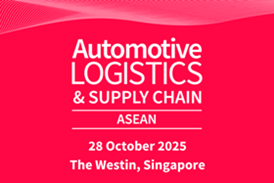






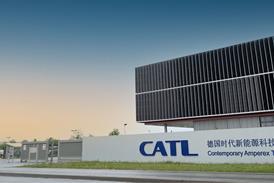

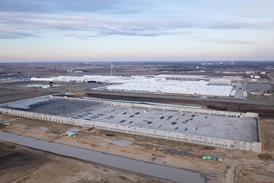















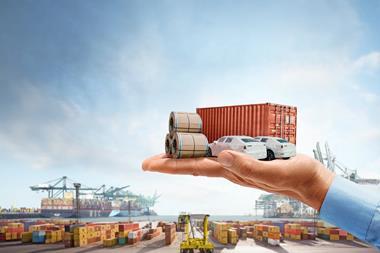



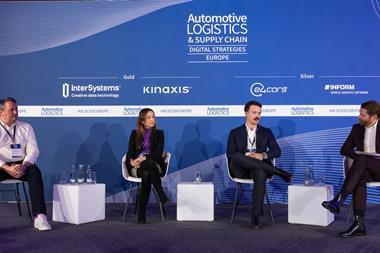



No comments yet